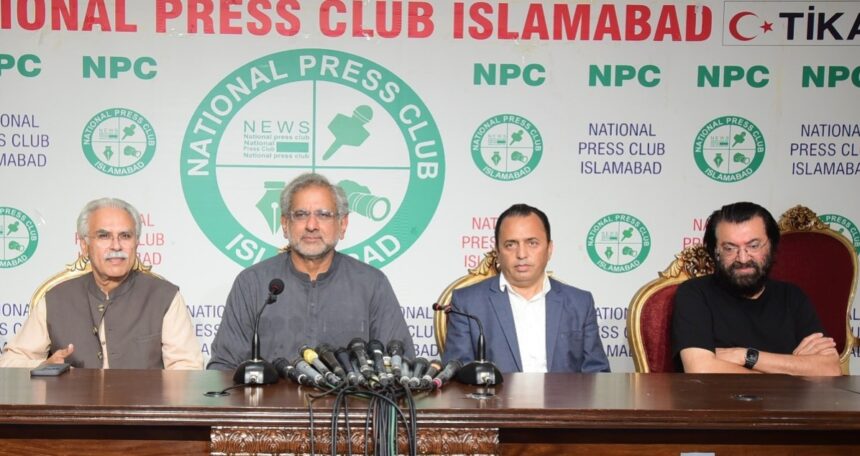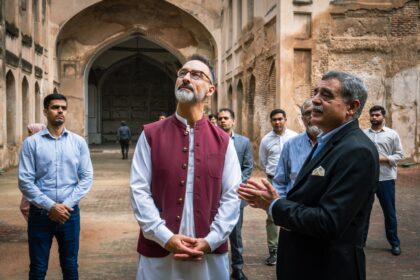Former Prime Minister and Convener of the Awam Pakistan Party, Shahid Khaqan Abbasi, has accused the government of prioritizing the interests of sugar mill owners over those of the public, resulting in sharp increases in sugar prices that have burdened ordinary citizens. Abbasi criticized government policies, claiming they have enabled sugar mill owners to reap excessive profits at the expense of consumers, while regulatory bodies and price control committees have failed to address the issue.
Speaking at a press conference in Islamabad, Abbasi alleged that the government imported sugar at prices even higher than those in international markets but did not release it into local markets. He argued that this move forced beverage companies and other manufacturers to purchase sugar at inflated prices, ultimately driving up costs for consumers. According to Abbasi, this manipulation allowed sugar mill owners to pocket an estimated 300 to 400 billion rupees that would otherwise have stayed with consumers.
Abbasi highlighted that the retail price of sugar has approached 200 rupees per kilogram, representing a 50 percent increase over the past year. He claimed that every one-rupee increase in the price of sugar means an additional seven billion rupees are shifted from people’s pockets to those of mill owners. Despite the existence of several government committees responsible for monitoring and controlling sugar prices, increases have persisted, with consumers left shouldering the financial burden.
He further stated that the government granted private sector companies permission to export sugar even when domestic supplies were insufficient. Meanwhile, the government itself managed imports, often at prices exceeding those on the global market. He also pointed out that government policy exempted sugar from sales tax but failed to make imported sugar available to ordinary consumers, again favoring mill owners who benefited from special relief and privileges.
Abbasi criticized the overall state of governance in Pakistan, alleging that the authorities not only fail to resolve public issues but also contribute to worsening them. He argued that the National Accountability Bureau is more invested in protecting corrupt political actors than holding them accountable. He concluded by saying that the price of sugar has skyrocketed while the government, parliament, and oversight committees have all failed to control the crisis or offer accountability, resulting in continued hardship for the Pakistani public.











